Did you know that for every 1,000 pounds or 454 kilograms of weight a car gains, the risk of death in a serious crash is reduced by nearly 50%? The heavier the vehicle, the more stable it is. However, heavier cars are less fuel efficient. “How much does a car weigh?” Unexpected, subtle impact on safety, fuel efficiency, and maintenance.
So, in addition to the make and model of the car, engine performance, or design, you should also know the weight of the car, or at least the average weight of a vehicle in that category. There are 10 main vehicle categories, with cars weighing between 2,919 pounds and 3,882 pounds, while SUVs range from 3,590 pounds to 5,603 pounds.
How do you estimate the weight of a car? In this guide, you’ll find in-depth statistics and explanations on the relationship between your car’s weight and your driving and maintenance experience and how to determine your car’s weight.
The 10 main vehicle classes are listed at the end of this article, along with their respective average weight and fuel efficiency, measured in miles per gallon, for city and highway driving.
How Much Does a Car Weigh Away: Why You Should Know
The weight of your car has an unexpectedly important impact on your driving experience:
Car Weight Guide: Safety
Simply put, the larger and heavier the car, the more stable it is on the road and the better it feels to drive. You can tell the difference even with a big scooter like the Honda’s Lead compared to a regular motorcycle.
In other words, larger cars and trucks have an advantage over smaller cars in a head-on collision. A study published in the Review of Economic Research estimated that for every 1,000 pounds or 454 kilograms a car weighed, the risk of death was reduced by 47 percent.
The combination of a superior driving experience coupled with safety concerns is part of the reason why consumers in automotive-dominated economies prefer larger and heavier vehicles. A prime example is the United States, where SUVs have significantly outpaced smaller categories in terms of market share.
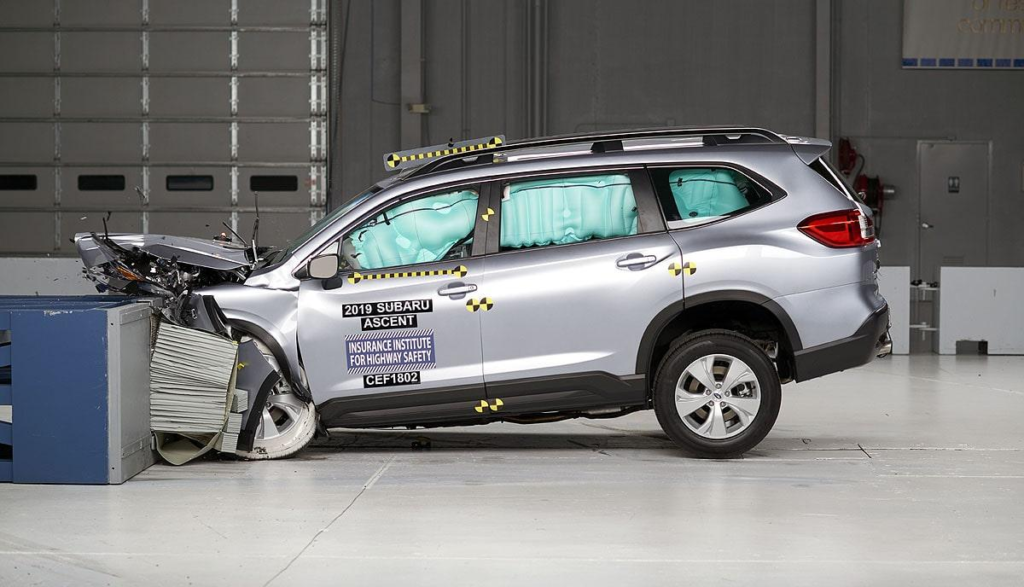
Crash tests and road accidents have proven that larger cars are safer in crashes. (Image source: freep)
Fuel efficiency and emissions
Despite the above advantages, larger vehicles perform worse in terms of fuel efficiency (measured in miles per gallon) and carbon emissions.
According to the U.S. Environmental Protection Agency, every 100 pounds or 45 kilograms of weight added to a vehicle means a 2% reduction in fuel efficiency.
What does this mean in terms of fuel costs? For every 100 pounds of weight reduction, that means 2% more fuel efficiency, and if your car averages 20 miles per gallon, it costs $3 per gallon of gas, and you drive about 30,000 miles per year, you’ll save $90 per year.
Now add that number up to 3 years, 5 years, 10 years, or even more. Simply check your suitcase for any unnecessary weight, such as camping gear, heavy sports gear, and kits, and you can save a lot of gas. Reducing the weight of a car by 100 pounds is usually manageable.

A smaller load means gas savings. (Image source: pixmedia)
maintenance
If you are a diligent person and do maintenance for your car in your own garage, it will be convenient to know how much it weighs, for example, choosing a floor jack or jack bracket that can withstand the weight of the vehicle.
payload
How do you estimate the weight of a car? A relevant definition of a car’s weight is its “payload,” or how much weight you can carry, including cargo and passengers. Heavy payloads can negatively affect handling, such as “bottoming out” the car when it is bumped, and accelerating wear and damage.
Knowing the weight of a car is important not only when driving or performing routine maintenance, but also when buying a new car.
What makes some models so heavy
In some models, you’ll add up to 500 to 600 pounds or 227 to 272 kilograms if you opt for the optional larger and more powerful engine, four-wheel drive, and luxury interior.
For example, the luxury SUV Mercedes-Benz GLS increases by 400 pounds with an optional engine and reaches 5,700 pounds. Another well-known mega-wrecking vehicle, the luxurious Lincoln Navigator, plus four-wheel drive, weighs 6,000 pounds.
On the other hand, choosing the opposite method can reduce the weight of the vehicle. For example, Ford recently managed to reduce the weight of their largest SUV, the Ford Expedition, by opting for aluminum for the body panels and switching from a turbocharged V8 to a lighter V6. It now weighs just over 5,400 pounds, a significant reduction from nearly 5,900 pounds.

Larger, more powerful SUVs offer a great driving and towing experience. (Image source: besthqwallpapers)
Trends in vehicle weight and fuel economy
In some Western markets, the market, represented by the United States, has shifted to the purchase of SUVs and trucks. The category now holds 50% of the market share, up from 20% in 1975, expanding the average weight of vehicles used in these markets.
At the same time, the weight of individual vehicles has generally decreased due to the widespread use of lighter materials, including plastic and aluminum.
Vehicle weight: different definitions
Here are the most important definitions used in the industry in relation to vehicle weight:
- Curb weight: The weight of a car without passengers and cargo. Indicators used by manufacturers. In this article, the term “weight” refers to “curb weight”.
- Gross Vehicle Weight (GVW): Curb weight plus passengers and cargo.
- Gross Vehicle Weight Rating (GVWR): The maximum weight that a vehicle can safely carry.
- Payload: Everything a vehicle can carry, including drivers, passengers, pets, toolboxes, gears, golf clubs, and anything else.
Other metrics you should know:
- Total weight: The weight of your car plus any empty trailers you tow.
- Maximum Loaded Trailer Weight: – The weight of your car plus the weight of a fully loaded trailer.
- Total axle load rating: The maximum weight that each axle can hold.
How much weight does a car have: how to know how much your car weighs
- Check the owner’s manual for curb weight.
- Find your vehicle by make, model, and year on the manufacturer’s website to learn about curb weight.
- Look for the Gross Vehicle Weight Rating (GVWR) label on the driver’s side door. You may also find curb weight.
The weight of the car: an average estimate of the different categories
wraparound
- Smart cars: 2,072 lbs or 940 kg;
- Subcompact car: 2,505 lbs or 1,136 kg;
- Small car: 2,919 lbs or 1,324 kg;
- Midsize cars: 3,145 lbs or 1,427 kg;
- Large cars: 3,361 lbs or 1,525 kg;
- Subcompact SUV: 3,590 lbs or 1,628 kg;
- Compact SUV: 3,882 lbs or 1,762 kg;
- Midsize SUV: 4,404 lbs or 1,998 kg;
- Large SUVs: 4,951 lbs or 2,246 kg;
- Half-ton trucks: 5,603 lbs or 2,542 kg.
Smart cars
Smart cars are small, affordable two-door cars that are most commonly found in large and densely populated cities. With a compact design, smart cars range from 2,050 pounds to 2,094 pounds in curb weight, or just over 1 ton, which makes them the lightest cars available.

Daimler’s smart car is the smallest and lightest four-wheeled vehicle on the planet. (Image source: drivespark)
They are produced by Smart Cars, a division of Daimler-Benz in Germany.
How do you estimate the weight of a car? Small car
The second-lightest car is the subcompact car, with a curb weight ranging from 2,433 pounds to 2,576 pounds, or 1.2 to 1.3 tons. Thanks to their compact structure, these cars achieve ideal fuel efficiency: about 30 miles per gallon in city driving and close to 40 mpg on highways.
Top 5 best-selling models in this category:
- Toyota Yaris: 2,315 to 2,335 pounds
- Nissan Versa: 2,395 to 2,494 pounds
- Modern Accent: 2,502 to 2,679 pounds
- Honda Fit: 2,522 to 2,648 pounds
- Kia Rio: 2,714 pounds.

The Honda Accent is popular in the subcompact car segment. (Image source: conceptcarz)
Car Weight Guide: Small Car
This category is very popular and weighs between 2,828 pounds and 3,010 pounds, or 1.4 to 1.5 tons. Despite being about 16% heavier than an ultracompact car, a compact car is about the same fuel efficient: about 30 miles per gallon in city driving and nearly 40 mpg on the highway.
Best Sellers:
- Toyota Corolla: 2,800 to 2,875 pounds
- Honda Civic: 2,762 to 3,010 pounds
- Nissan Sentra: 2,866 to 3,077 pounds
- Volkswagen Jetta: 2,888 to 2,970 pounds
- Modern Elantra: 2,822 to 3,131 pounds.
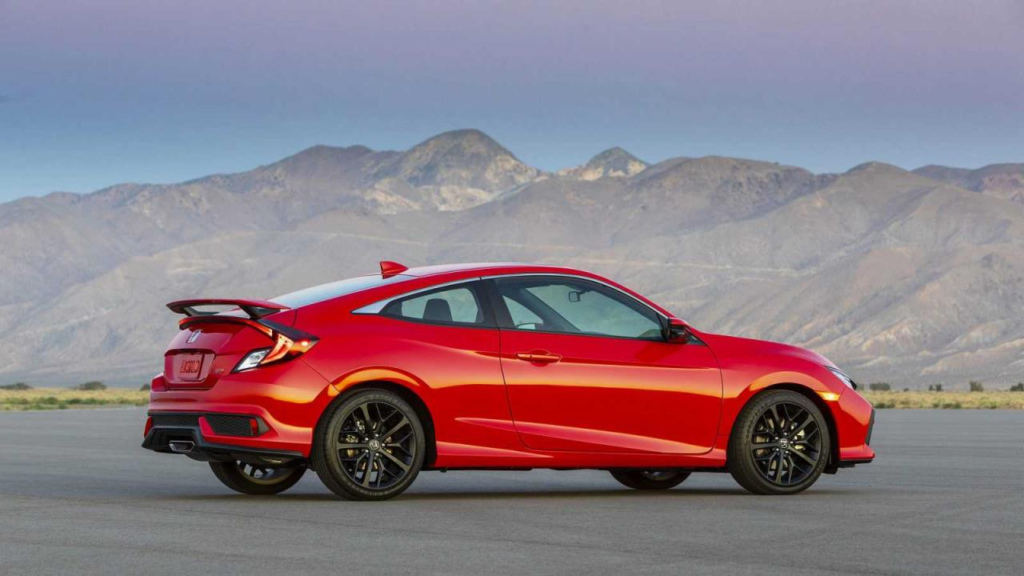
The Honda Civic is loved for its design, affordability, and reliability. (Image source: wallpaperbetter)
Medium-sized cars
As you may already know, the best-selling cars of all time in homes and businesses around the world, including the Toyota Camry and Honda Accord, are mid-size cars.
Mediums range from 3,212 pounds to 3,509 pounds, or 1.6 to 1.8 tons. Weighing 14 to 17 percent heavier than compact cars, they are 5 percent less fuel efficient in the city but stay around 40 mpg on the highway.
Best Sellers:
- Toyota Camry: 3,241 to 3,572 pounds
- Honda Accord: 3,131 to 3,428 pounds
- Nissan Altima: 3,212 to 3,462 pounds
- Kia Optima: 3,230 to 3,558 pounds
- Modern Sonata: 3,247 to 3,527 pounds.
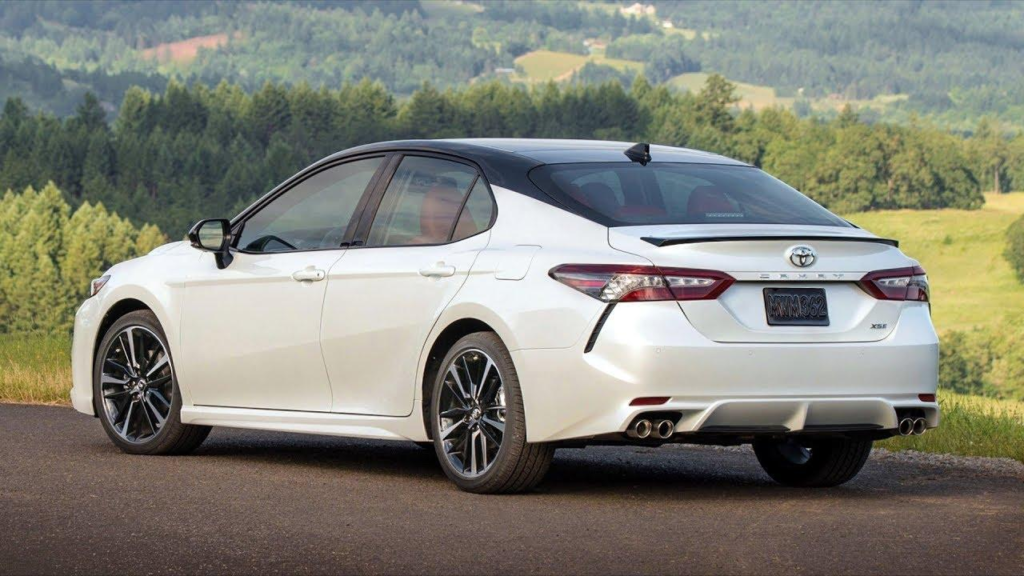
Due to its all-round features, the Toyota Camry is the best-selling model of all time. (Image source: thethings)
Large cars
In this segment, the focus is on mass-market models rather than luxury cars, as the mass segment is more commonly used, while the weight of the luxury segment varies greatly.
The large car category ranges from 3,738 pounds to 4,027 pounds, or 1.9 to 2.0 tons, which is 15 to 16 percent more than midsize cars. This extra weight reduces fuel efficiency to 19-20 mpg in the city and 30 mpg on the highway.
Best-selling models:
- Dodge Charger: 3,934 to 4,574 pounds
- Nissan Maxima: 3,552 to 3,676 pounds
- Chrysler 300: 4,013 to 4,380 pounds
- Toyota Avalon: 3,560 to 3,704 pounds
- Kia Cadenza: 3,633 to 3,799 pounds.

A beautiful and powerful Chrysler 300. (Image source: carhp)
How much does a car weigh? Subcompact SUV
You might be surprised to learn that a subcompact SUV is actually comparable to a compact sedan. Subcompact SUVs weigh from 2,991 pounds to 3,299 pounds, or 1.5 to 1.65 tons.
Regarding fuel efficiency, they are more than 25 miles per gallon in the city and more than 30 miles per gallon on the highway.
Best Selling Small SUVs:
- Subaru Crosstrek: 3,113 to 3,239 pounds
- Honda HR-V: 2,906 to 3,150 pounds
- Hyundai Kona: 2,890 to 3,276 pounds
- Jeep Renegade: 3,056 to 3,532 pounds
- Toyota C-HR: 3,300 lbs.

The Jeep Renegade is popular with off-roaders and families looking for space and a dreamy driving experience. (Image source: Pinterest)
Car Weight Guide: Compact SUV
With an average weight of 3,451 pounds to 3,728 pounds, or 1.7 to 1.9 tons, this increasingly popular category is 13 to 15 percent heavier than subcompact SUVs.
Best Sellers:
- Honda CR-V: 3,307 to 3,512 pounds
- Nissan Rogue: 3,454 to 3,660 pounds
- Toyota RAV4: 3,455 to 3,630 pounds
- Jeep Cherokee: 3,590 to 4,250 pounds
- Subaru Forester: 3,449 to 3,588 pounds.
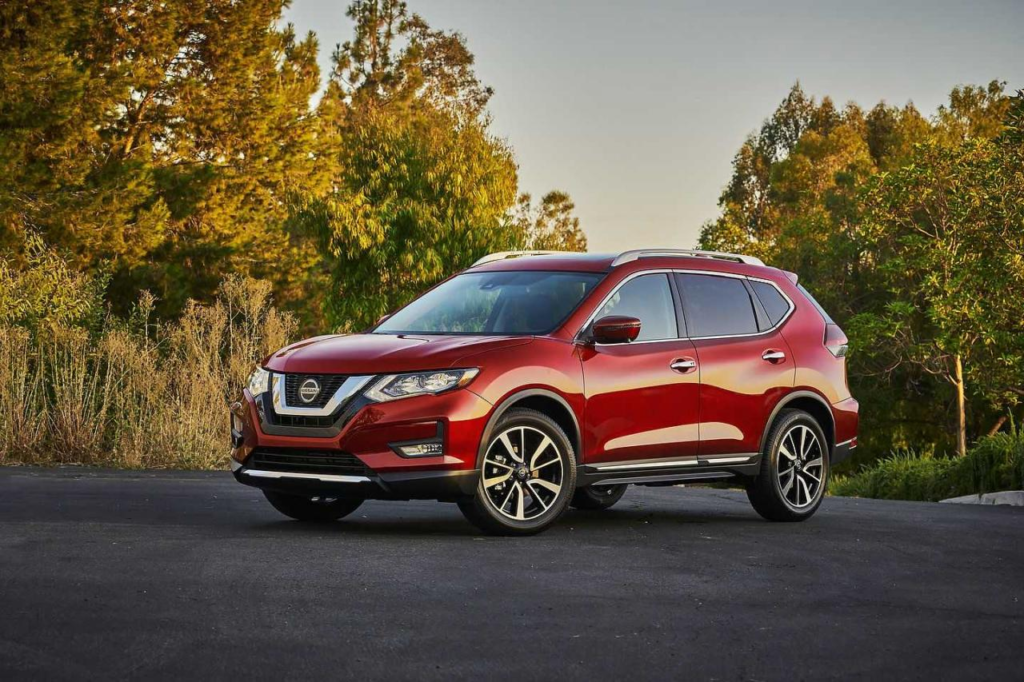
Nissan hooligan. (Image source: conceptcarz)
How do you estimate the weight of a car? Midsize SUV
Midsize SUVs are the most popular types of SUVs, with the Jeep Grand Cherokee and Toyota 4Runner being family favorites. They weigh around 4,135 pounds to 4,673 pounds, or 2.1 to 2.3 tons, which is 20 to 25 percent heavier than compact SUVs.
Sales Leaders:
- Jeep Grand Cherokee: 4,513 to 5,363 pounds
- Toyota Highlander: 4,134 to 4,508 pounds
- Toyota 4Runner: 4,400 to 4,805 pounds
- Honda Pilot: 4,036 to 4,319 pounds
- Modern Santa Fe: 3,591 to 4,372 pounds.
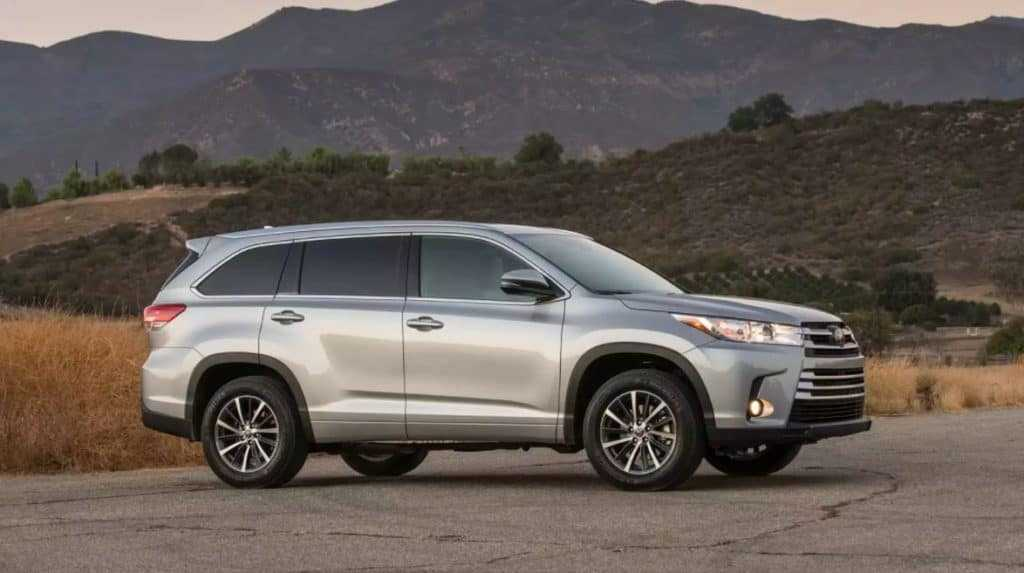
The popular Toyota Highlander. (Image source: nissanofpicayune)
Large SUV
Large SUVs are popular for their spacious family movers, which weigh from 5,468 pounds to a sturdy 5,738 pounds, or 2.7 to 2.9 tons. Weighing 23 to 32 percent heavier than midsize SUVs, they are really big.
Best-selling models:
- Nissan fleet: 5,576 to 5,963 pounds
- Ford Expedition: 5,443 to 5,692 pounds
- Chevrolet Tahoe: 5,355 to 5,602 pounds
- Chevrolet Suburban: 5,586 to 5,808 pounds
- GMC Yukon: 5,379 to 5626 pounds.

The GMC Yukon is by far the largest non-truck vehicle. (Image source: Drivetribe)
Half-ton trucks
Half-ton trucks are also known as full-size pickup trucks and are common on the roads these days. In fact, they are the best-selling cars in the United States. Only superstars in the midsize car category like the Toyota Camry and Honda Accord come close to sales.
With the introduction of aluminum-body trucks and 8- or 9-speed transmissions, manufacturers in this segment have been progressively reducing weight and improving fuel efficiency.
The average weight is 4,496 pounds to 5,406 pounds, or 2.2 to 2.7.
Best Sellers:
- Ford F150: 4,069 to 5,424 pounds
- Chevrolet Silverado: 4,257 to 5,155 pounds
- Ram 1500: 4,798 to 5,372 lbs
- GMC Sierra 1500: 4,257 to 5,400 lbs
- Toyota Tundra: 5,100 to 5,680 pounds.
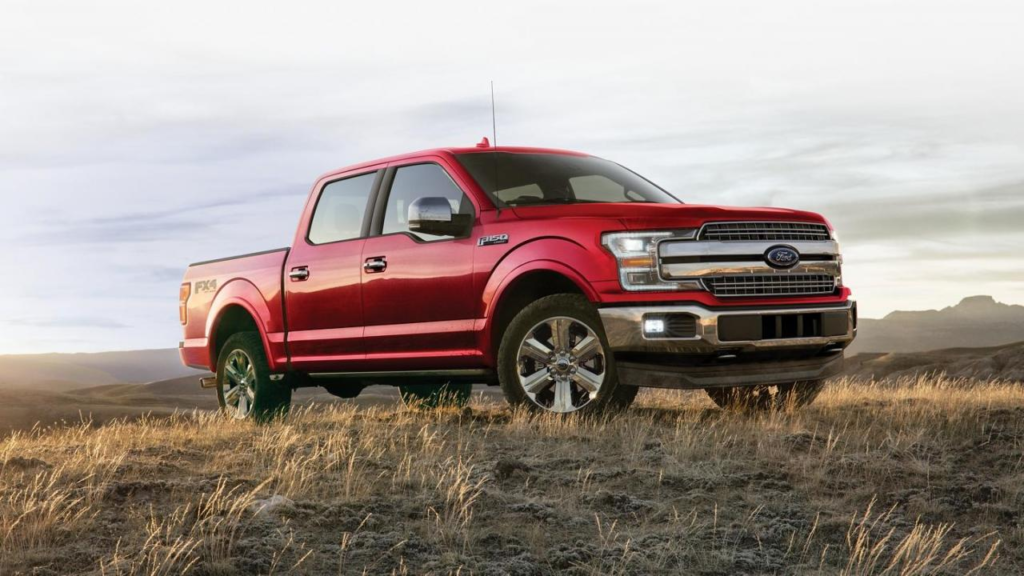
2020 Ford F-150 full-size pickup truck. (Image source: hotcars)
Summary of the car weight guide
Know “How much does a car weigh?” Answer. Make an impact on your driving, including safety, fuel efficiency, and maintenance. Therefore, it is also a purchase factor when choosing a new car. Whether collision safety or fuel efficiency is your top priority, knowing these numbers will help you balance and decide which car best suits your needs.